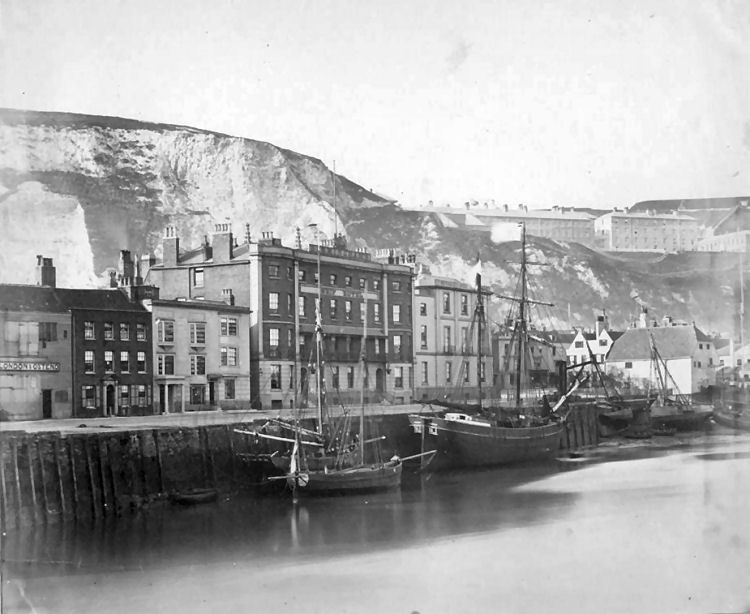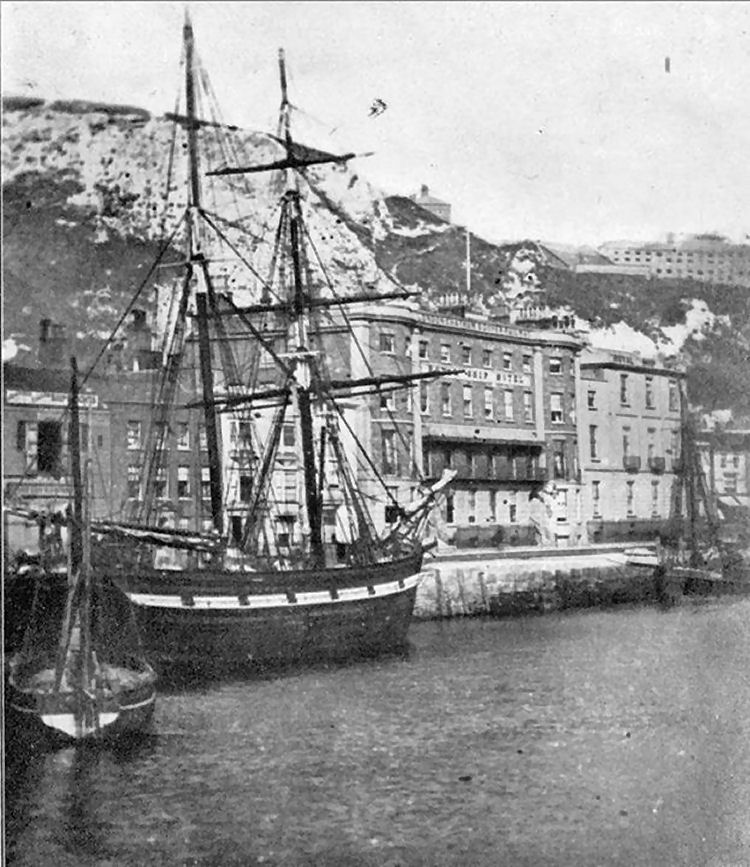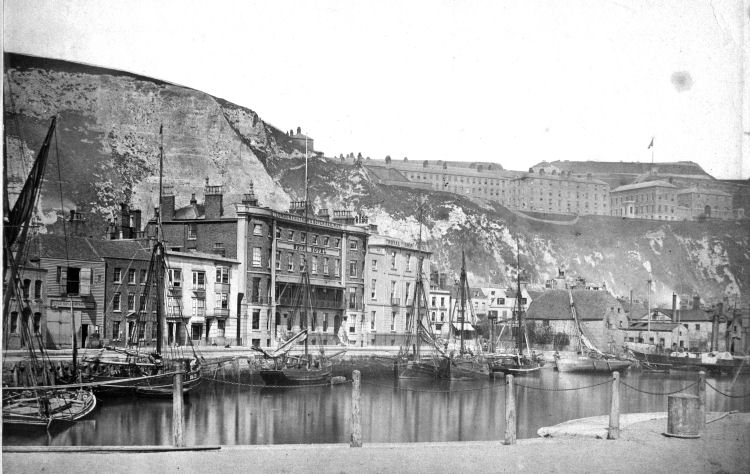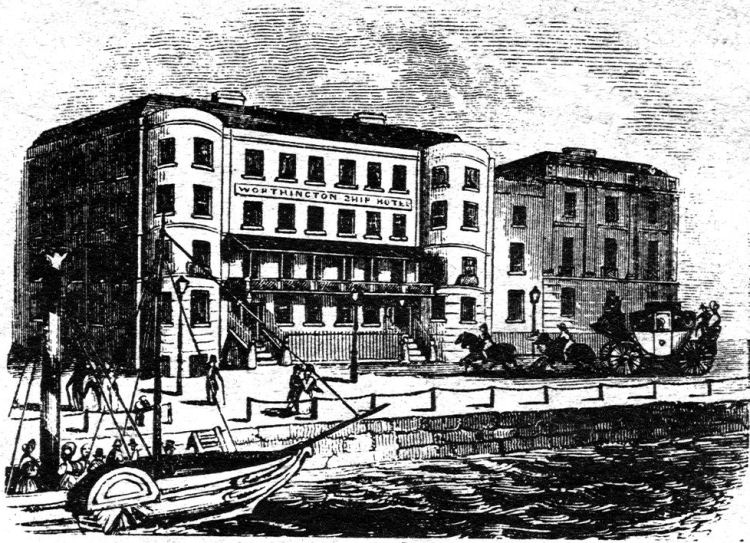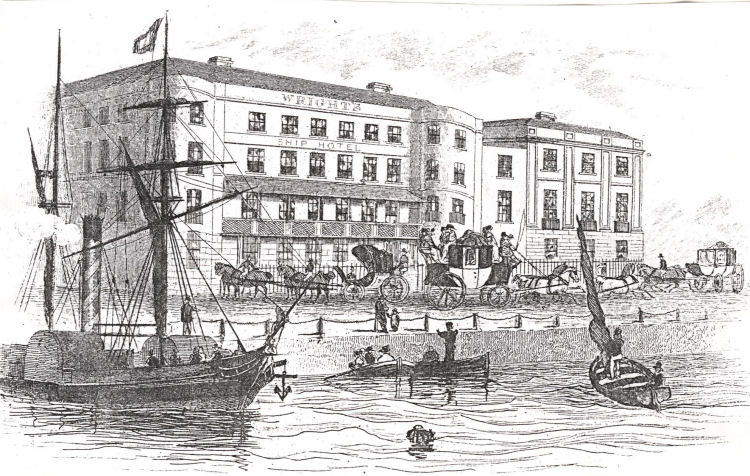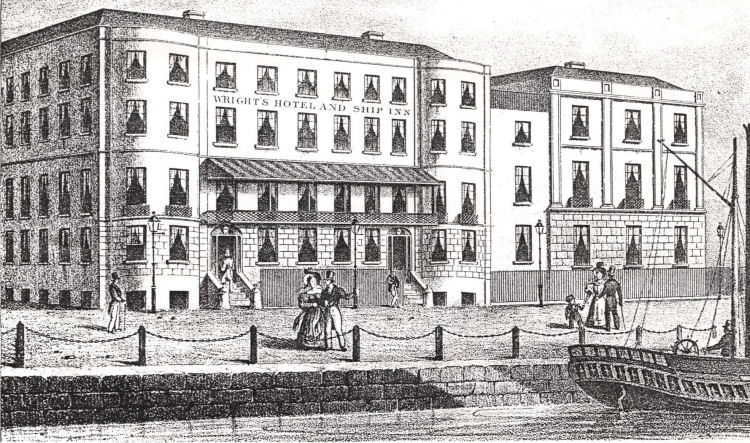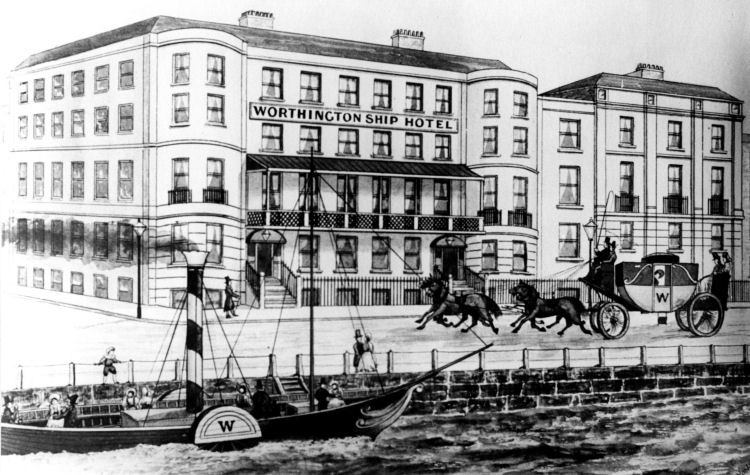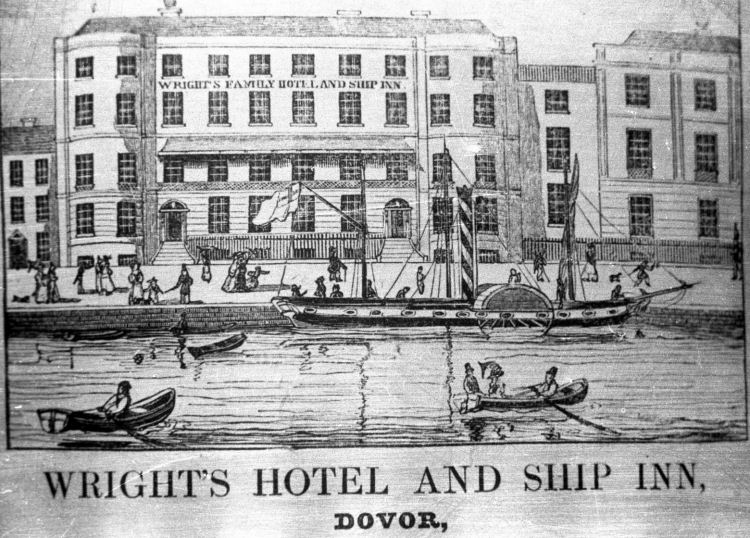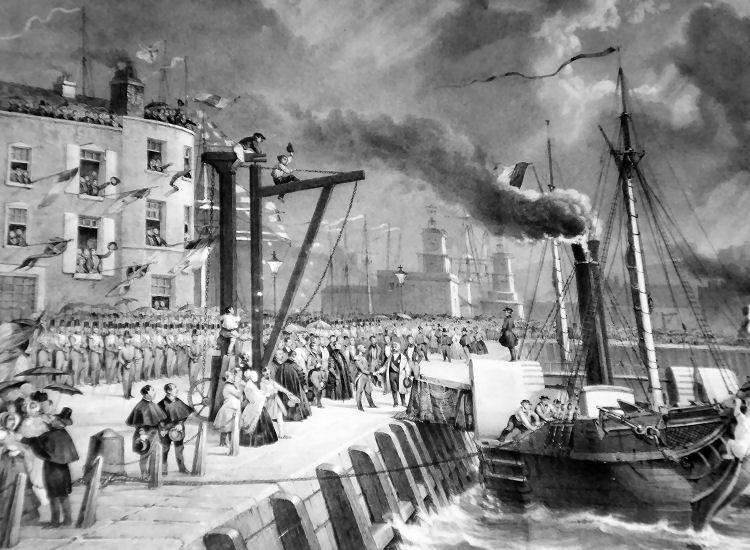Sort file:- Dover, November, 2025. |
|||||||||||||||||
Page Updated:- Thursday, 13 November, 2025. |
|||||||||||||||||
| PUB LIST | PUBLIC HOUSES | Barry Smith and Paul Skelton | |||||||||||||||
|
Earliest 1747- |
Ship Hotel |
Latest 1872 |
|||||||||||||||
|
Custom House Quay
Dover
A "Ship" was listed in the census of 1545. Six beds and stabling were shown but no address was given, the licensee at that time was given as Hugh Brackett. That could well have been this. Also shown was the "Ship Victualling House" with four beds and that was in Biggin Street and the licensee being a Edward Foster. This was probably the "Victualling Offices" now the Town Hall that used to supply the Navy. It is recorded that Henry Rouse, innkeeper of the "Ship", died on 28 August 1679 and Samuel Foote, actor, died at a "Ship Inn" in 1777.
Biography of Henry ROWSE. Henry was born about 1639 (Est. from age given at marriage) Henry Rowse, innkeeper aged 24, married Jone FESTER aged 20 at Canterbury on 16 July 1663. To date, no baptisms of children have been found to this couple. Prior to his death in 1679 Henry was owner and proprietor of the Ship Inn on the quay at Dover. Henry Rouse was buried at Dover on 17 Oct 1679. This is supported by a 1679 will of Henry Rowse of Dover who names his loving wife Jone. Probate was granted the same year indicating Henry passed within a few months of him making the will. An inventory of the same man made that year indicates he was an 'innholder'. The will of Henry Rowse, innholder, written 28 July 1679 with revision 8 Aug 1679 mentions: The "house or inn called Shipp wherein I now dwell in Dover, together with outhouses, other buildings, stables... malthouse..." wife Jone Rowse sister Elizabeth, widow of Thomas Milton sister Mary, wife of Thomas Banning. Children Henry & Mary sister Ann Ranger, widow neice Margaret Ranger (younger than 18yrs), d/o sister Ann, widow Phineas, John & George, sons of Warham Jemmett brother(?) or friend John Bullack servant John Collins friend William Stratfield John & Mary, children of Henry Banning.
Before the "Lord Warden" days it was noted for receiving "crowned heads" and other notable. Marshal Blucher was there in 1814. History has it that Wellesley, the Duke of Wellington, was carried shoulder high to this amenity when he returned from the low countries following Waterloo in 1815. "Byron life and legend" by Fiona MacCarthy states on page 279 that Lord Byron stayed in the "Ships Inn," Dover before he left England for the last time in 1816.
| |||||||||||||||||
